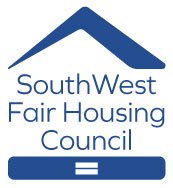HUD's Step Towards Greater Inclusivity: New Rule on Fair Housing Testers
In a landmark move, the Department of Housing and Urban Development (HUD) has eliminated hiring restrictions on fair housing testers with prior felony convictions. This decision addresses long-standing criticisms of outdated and discriminatory regulations and marks a significant shift in fair housing enforcement.
Background and Changes
Previously, HUD regulations prohibited Fair Housing Initiatives Program (FHIP) and Fair Housing Assistance Program (FHAP) funded entities from employing testers with certain criminal backgrounds. These restrictions aimed to ensure the credibility of testers but inadvertently limited the pool of individuals who could contribute to fair housing efforts.
Advocates have long argued that these restrictions were overly broad and hindered the ability to test for housing discrimination effectively. Especially since the recordings of fair housing tests are often the most important evidence, rather than the testers' testimony, compounded by strict regulations that ensure that testers are objective and well qualified. Lastly, testers with actual criminal records are best suited to obtain evidence of discriminatory housing practices related to criminal background screening policies.
By removing these restrictions, FHIP and FHAP funded entities will be able to fully investigate potential violations of the Fair Housing Act and improve inclusivity in HUD programs for people with criminal convictions. This change highlights the adoption of second chance ideology and inclusivity within HUD, and serves as a employment role model for those who have served their time and seek to reintegrate into society.
Key Points of the Final Rule
Elimination of Restrictions: The new rule removes the prohibition on compensating testers with prior felony convictions or convictions for fraud or perjury.
Enhancing Testing Efforts: This change allows FHIP and FHAP funded entities to utilize a more diverse group of testers, improving the ability to detect discriminatory practices.
Empowering Individuals: By including individuals with criminal backgrounds, the rule provides opportunities for skill development, employment, and community engagement, fostering self-sufficiency and reducing stigma.
Are you interested in helping identify housing discrimination in Arizona? Make a difference in your community by learning more about our Fair Housing Tester program and helps us enforce fair housing laws.

